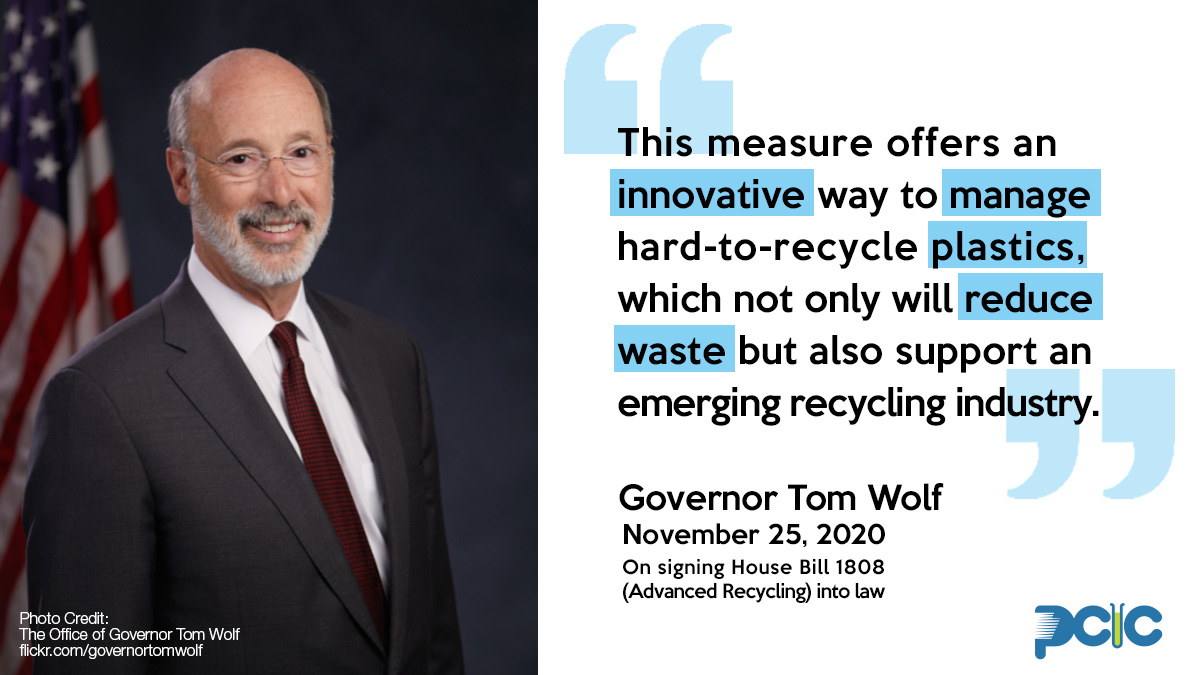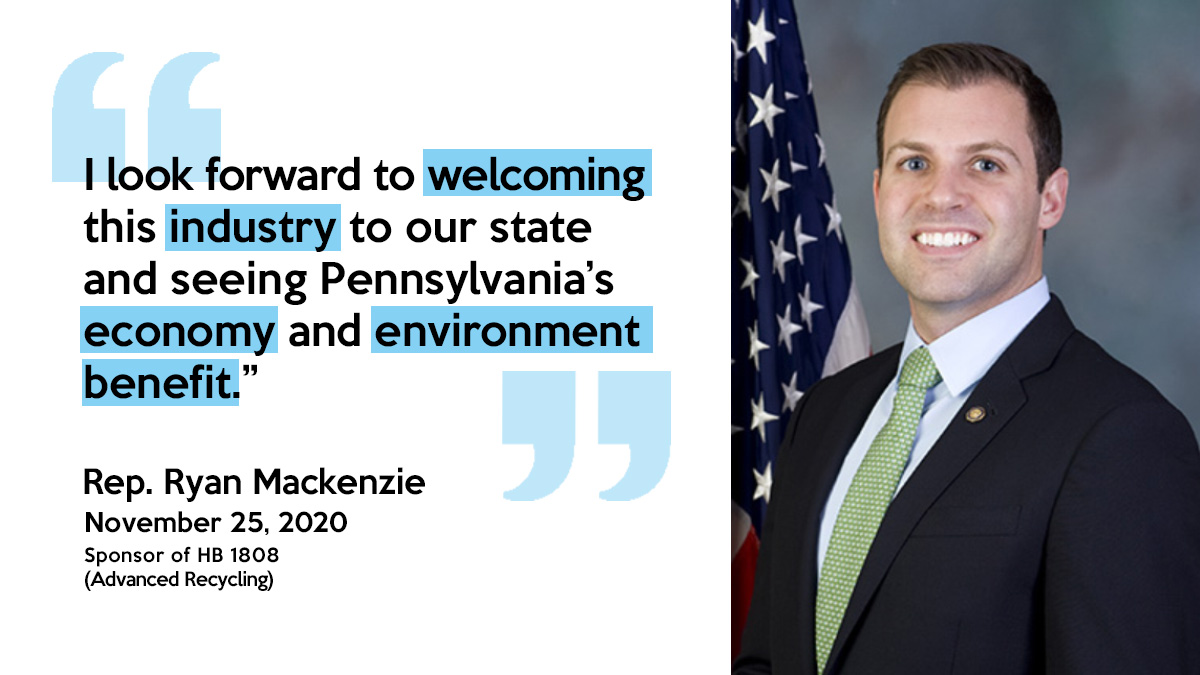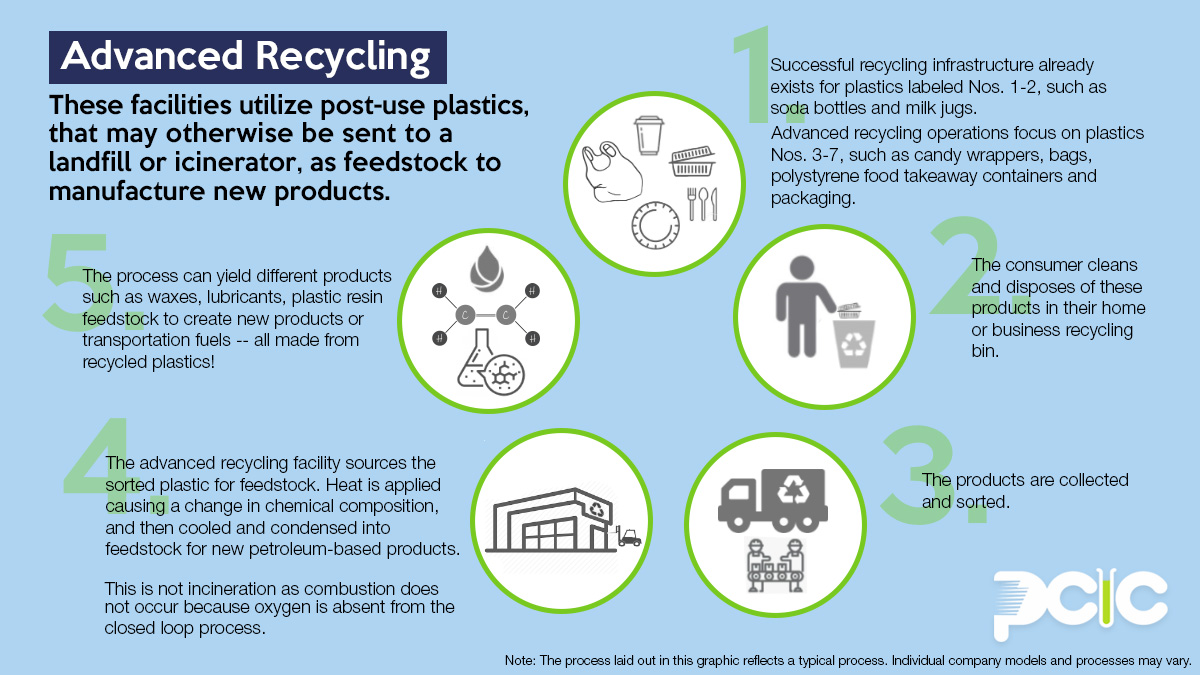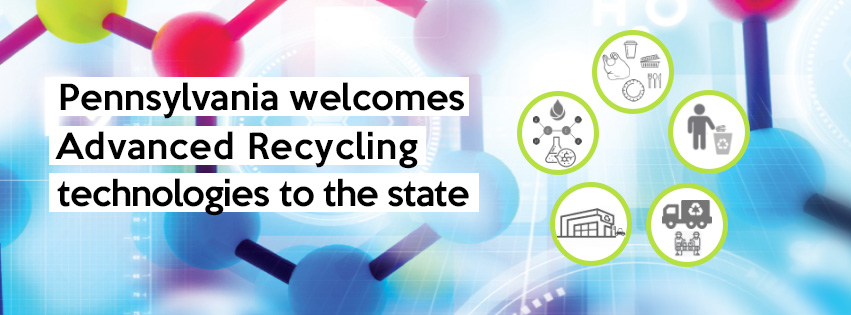How can we do more with less?
That question is not about reducing costs, it’s about how we can use less resources, while still maintaining the quality of life to which we are accustomed.
Plastic products play a significant role in our daily lives -- both with the products we physically touch and utilize and those at work behind the scenes. Increasingly, these products are also playing an important role in reducing greenhouse gas emissions and our overall impacts on the environment. For example, plastic-based building materials, such as insulation and sealants, improve energy efficiency and reduce energy consumption in buildings, and plastic parts reduce vehicle weights, resulting in improved fuel economy and reduced emissions. Across industry sectors plastic innovations are reducing our impact on the environment.
In the past, how these products are managed after use has presented a challenge where innovations in technology and industry are now helping to provide a solution. Advanced recycling technologies utilize post-use plastics, which may otherwise be landfilled, as feedstock to create new products.
On November 25, Gov. Tom Wolf signed a bill into law to ensure companies utilizing these technologies are appropriately regulated as manufacturers and not waste facilities in Pennsylvania.
"Addressing climate change is one of the most important issues that we face, and that is why my administration has made it a top priority to support comprehensive efforts to reduce greenhouse gas emissions and waste, including the growing challenge of reducing plastic waste in landfills," Wolf said. "This measure offers an innovative way to manage hard-to-recycle plastics, which not only will reduce waste but also support an emerging recycling industry."

House Bill 1808, now Act 127, was introduced by Rep. Ryan Mackenzie (PA-134) to provide regulatory certainty for companies considering investments in Pennsylvania. The legislation also makes clear that these facilities are not taking in or handling municipal waste, and are fully compliant with all Pennsylvania Department of Environmental Protection and Environmental Protection Agency permitting requirements.
“Advanced recycling presents an emerging market in the United States, and we have seen these facilities successfully deployed at a commercial scale in other states over the last seven years,” Mackenzie said. “They are having a tremendous impact in their communities, reducing waste in the surrounding regions while demonstrating a business model that does more with less. I look forward to welcoming this industry to our state and seeing Pennsylvania’s economy and environment benefit.”

Successful recycling infrastructure already exists for plastics labeled Nos. 1-2, such as soda bottles and milk jugs. These advanced recycling operations are focused on plastics Nos. 3-7, such as candy wrappers, bags and packaging, which are a burden on municipal recycling programs because they cannot be recycled in the existing mechanical recycling infrastructure. Advanced recycling technologies will not replace existing recycling infrastructure but rather work in concert with it.
"Over the last decade, recycling tonnages and public demand for services have increased significantly while recycling infrastructure, technology and waste management teams work to keep up,” said Holly Vogt, Beaver County Department of Waste Management’s director and sustainability/recycling coordinator. “Many haulers are collecting only select plastics curbside due to limited end users. These advanced recycling technologies have created a new end-use market for plastics that have previously been a challenge to recycle. We look forward to offering new services to our customers and partnering with companies to supplement our operations and reduce the footprint of waste by diverting valuable materials. This is an exciting opportunity to expand and enhance recycling both locally and beyond."
While this technology may be new to Pennsylvania, across the country, private companies are already manufacturing post-use plastics at a commercial scale into a versatile mix of new chemicals, feedstocks, products and more environmentally friendly transportation fuels. For example, Shell Chemicals is using a liquid feedstock made from plastic waste, supplied by Nexus Fuels, in its chemical plant in Norco, LA to make a range of new products and Brightmark recently initiated a national site search for their next $1 billion advanced plastic recycling facility. In April, Brightmark narrowed its search and Pennsylvania is one of seven states still in the running. This facility is expected to manufacture 200,000 tons of waste plastics annually into new products. The regulatory certainty provided this legislation will provide companies an additional reason to consider an investment in Pennsylvania.
The process is basic chemistry. Plastics Nos. 3-7 are delivered for processing, any remaining contaminants are removed, and the plastics are heated, causing a change in chemical composition, and then cooled and condensed into feedstock for new petroleum-based products. This is not incineration as combustion does not occur because oxygen is absent from the closed loop process.

“Plastics play a critical role in modern society and are too valuable to be thrown away or burned,” said Abby Foster, president of the Pennsylvania Chemical Industry Council. “These technologies extend the product life cycle and are providing a free market solution to help address a global and domestic challenge of waste management. Pennsylvania is fortunate to have a strong and growing petrochemical and plastics market, and potentially now an advanced recycling market to make a truly circular economy for plastics here in the commonwealth.”
According to the American Chemistry Council, converting just 25 percent of the recoverable post-use plastics in Pennsylvania could support 10 advanced recycling manufacturing facilities, resulting in $314 million in new economic output annually.
